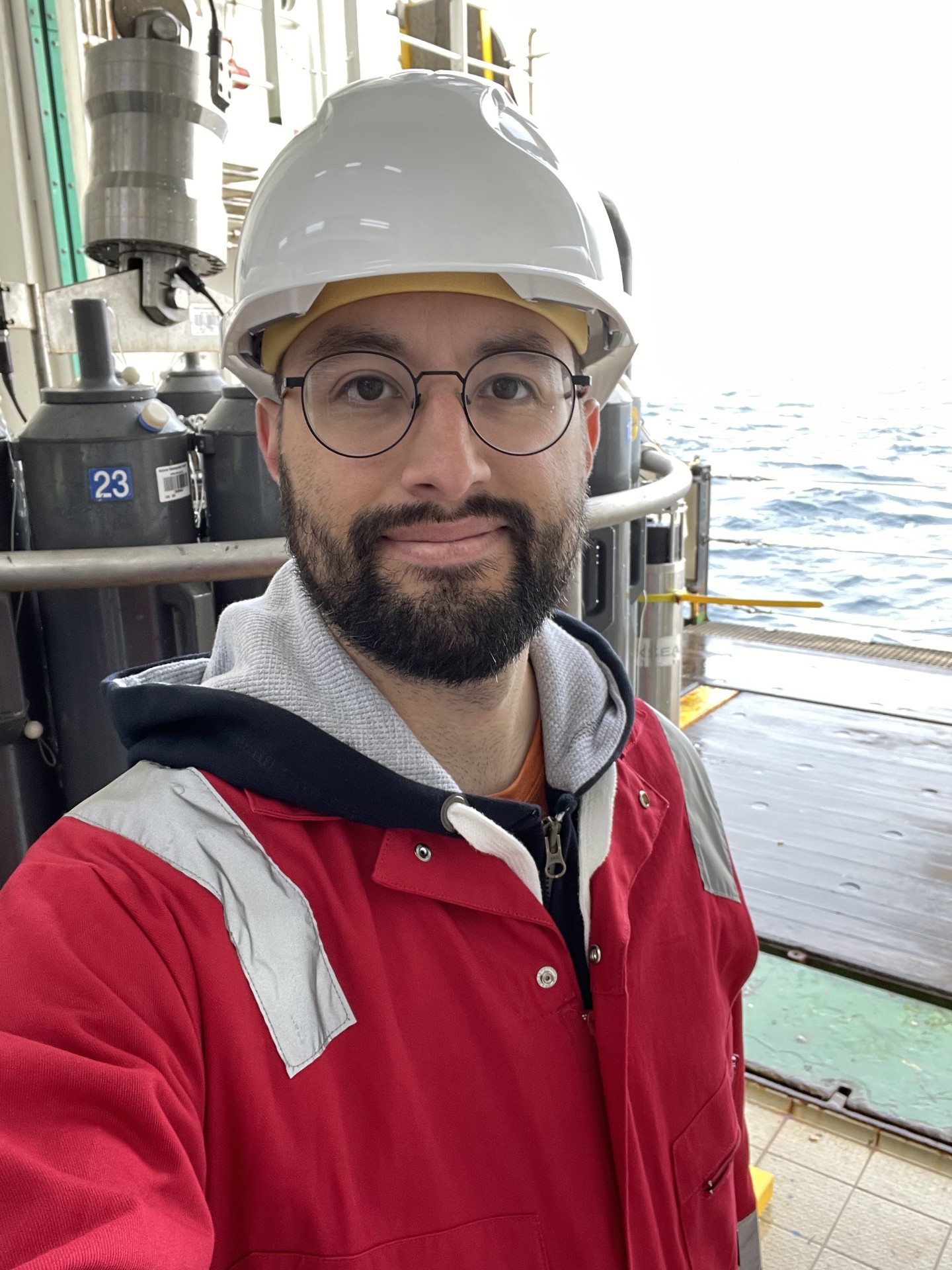
Name
Dr Anthony Lucio
Institution
National Oceanography Centre
Council position
Publications & Website Portfolio
Years on council
2024-present
Brief biography
Anthony is a senior research engineer in the Ocean Technology & Engineering group at the National Oceanography Centre (NOC) in Southampton. His research interests are focused on developing sensors to study the ocean carbonate system (pH, dissolved inorganic carbon and alkalinity).
Anthony completed his studies in the USA and graduated with a BS degree in Chemistry from Saginaw Valley State University (2012) and he went on to do a PhD in Chemistry (with a specialisation in electrochemistry) at the University of Iowa (2017). He then moved to the UK and completed two 2.5-year postdoctoral research appointments at the University of Warwick (2020) and the University of Leicester (2023) working on sensor development and battery chemistry research, respectively. He joined the NOC in spring 2023 and has been developing as an early career ocean scientist by leading the development of electrochemical sensors to study biogeochemical processes. Anthony has participated in two research expeditions in the Atlantic Ocean on the RRS James Cook (UK) and the R/V Sarmiento de Gamboa (Spain).
Latest News
Royal Society Publishing Photography Competition 2025
Please see a message from the Royal Society below:
We are delighted to announce that the 2025 Competition is now open for entries until 15 August for a chance to win £1000! The competition celebrates the power of photography in conveying the wonder of science happening all around us and photographs can be submitted in the categories of: Astronomy, Behaviour, Earth Science and Climatology, Ecology and Environmental Science, and Microimaging.
The competition is free to enter and open to anyone studying or working in science at graduate level or above. Category winners will receive a one-year membership to the Royal Photographic Society and the overall winner will receive a grand prize of £1,000. Find out more: https://bit.ly/RSPphotocomp
October 2025 MEDIN Workshop: Marine Data Management, Governance and the MEDIN toolset
The Marine Environmental Data and Information Network (MEDIN) are pleased to announce that registration is now open for the next occurrence of our popular free online training workshop: ‘Marine Data Management, Governance and the MEDIN toolset’ on the 13th – 17th October 2025 on OceanTeacher Global Academy.
Marine Data Management, Governance and the MEDIN toolset
The Marine Environmental Data and Information Network (MEDIN) and OceanWise are delighted to invite you to attend our popular free online training workshop: ‘Marine Data Management, Governance and the MEDIN toolset’ on the 19th – 23rd of May 2025.
